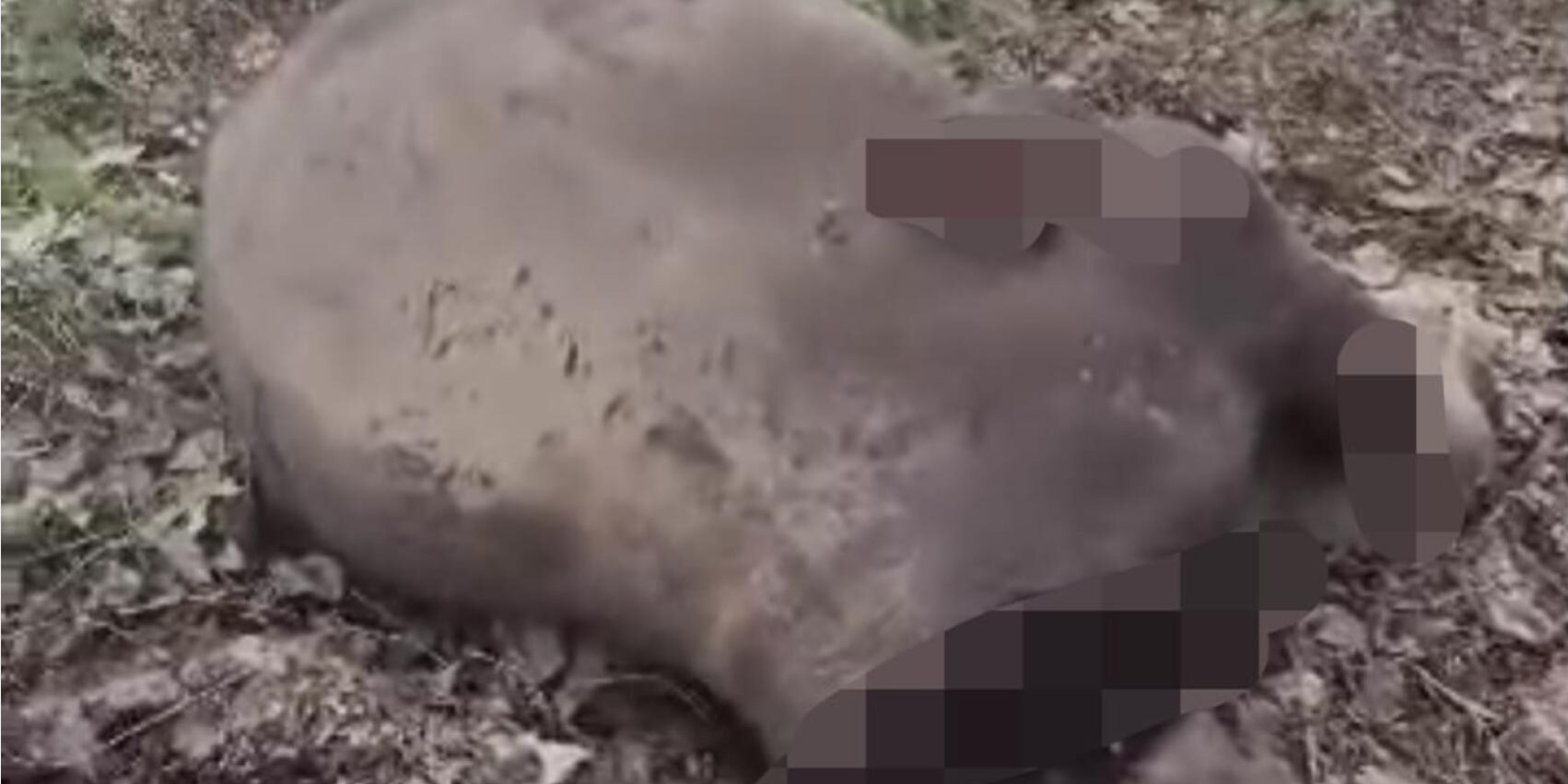Decapitated elephant found along the Kalabakan-Sapulut road last week.
KOTA KINABALU (Jan 26): Environmental and wildlife protection groups under Coalition Humans Habitats Highways (3H) are sounding the alarm over the proposed construction of an alignment of the Pan Borneo Highway (PBH) through elephant habitat in Tawai Forest Reserve, Telupid.
Conservationists are concerned that the alignment, which is set to cut through some of the last remaining wilderness areas for elephants, could fuel a resurgence in poaching, threatening the survival of these already vulnerable animals. The recent beheading of an elephant along the Kalabakan road is just an example of what could happen when the PBH will traverse the Class 1 Forest Reserve where a large concentration of elephants is found.
Elephant poaching has been a persistent crisis, fuelled by the high demand for ivory and other body parts on the black market. The proposed alignment would provide poachers easier access to a previously remote elephant population, facilitating illegal hunting and the illegal transport of ivory. Experts warn that this new alignment could significantly worsen an already dire situation for elephants.
“We know from experience that road construction in elephant habitats directly contributes to increased poaching,” said Professor Benoit Goossens, Director of Danau Girang Field Centre, and a member of the Coalition 3H.
“When poachers gain access to these previously protected areas, the impact is devastating. Elephants, already facing multiple threats (road kills could be another one with the PBH), will be even more vulnerable to exploitation. This road could tip the balance and push the Telupid population to the brink of extinction,” added Goossens.
Coalition 3H is calling on the government and relevant authorities to reconsider the proposed alignment and implement alternative routes that avoid crucial elephant habitats.
The Sabah Wildlife Department is already implementing stronger measures to combat poaching, including increased anti-poaching patrols, the establishment of an intelligence unit, and stronger enforcement of wildlife protection laws. Building a road through a protected forest full of elephants would add many more constraints to an already daunting task.
“We must recognize that the fight against elephant poaching is not just about stopping illegal hunting — it’s about preventing the conditions that allow poaching to thrive. Roads are a catalyst for this illegal activity, and we cannot ignore the direct link between infrastructure development and the increase in poaching,” said Goossens.
“We understand that changing the alignment will incur some additional costs for this section of the PBH. However, adopting mitigation measures such as the creation of safe passageways for elephants and other wildlife to mitigate the impact of the road as well as increasing enforcement in the area to avoid poaching will also have additional costs,” he added.
As elephant populations continue to decline due to poaching, habitat loss and other threats, the construction of roads through their remaining habitats could be a critical blow to their survival. If left unaddressed, this road could contribute to a new wave of poaching that endangers elephants for generations to come.
Coalition 3H urges immediate action to halt the road construction and prioritize the protection of elephant habitats, ensuring that these majestic animals can continue to thrive in the wild.
Coalition 3H (Humans Habitats Highways) comprises the following organisations: LEAP Spiral, Forever Sabah, Danau Girang Field Centre, WWF Malaysia, Borneo Futures, Seratu Aatai, Bornean Sun Bear Conservation Centre, Jaringan Orang Asli Sabah, PACOS Trust, SAVE Rivers Network, 1StopBorneo Wildlife and Sabah Bird Watchers Association.
Source article : https://www.theborneopost.com/2025/01/26/potential-link-between-road-infrastructure-and-elephant-poaching/





